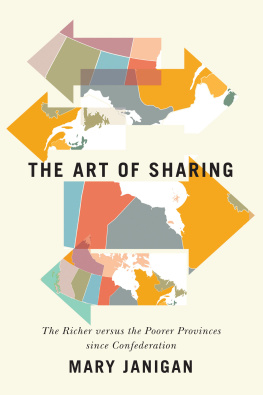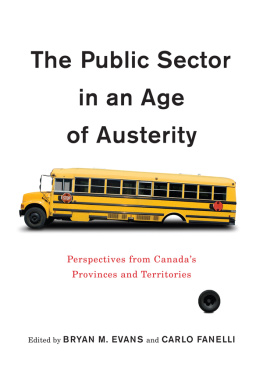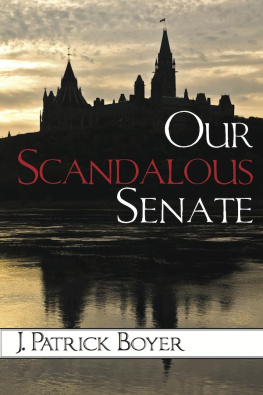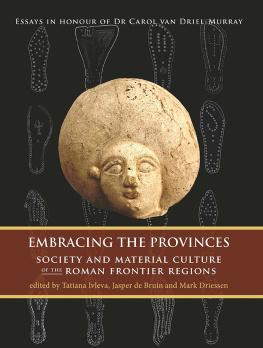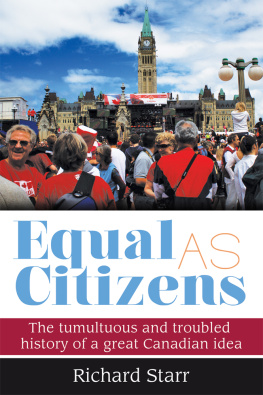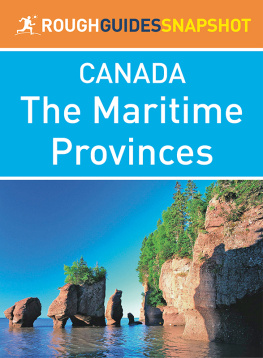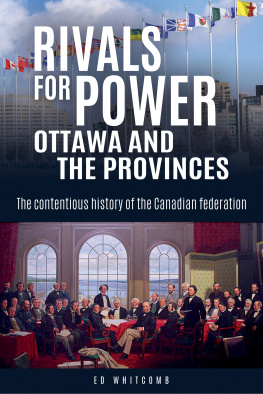
THE ART OF SHARING
CARLETON LIBRARY SERIES
The Carleton Library Series publishes books about Canadian economics, geography, history, politics, public policy, society and culture, and related topics, in the form of leading new scholarship and reprints of classics in these fields. The series is funded by Carleton University, published by McGill-Queens University Press, and is under the guidance of the Carleton Library Series Editorial Board, which consists of faculty members of Carleton University. Suggestions and proposals for manuscripts and new editions of classic works are welcome and may be directed to the Carleton Library Series Editorial Board c/o the Library, Carleton University, Ottawa K1S 5B6, at .
CLS board members: John Clarke, Ross Eaman, Jennifer Henderson, Paul Litt, Laura Macdonald, Jody Mason, Stanley Winer, Barry Wright
236 Trade, Industrial Policy, and International Competition, Second Edition
Richard G. Harris Introduction by David A. Wolfe
237 An Undisciplined Economist Robert G. Evans on Health Economics, Health Care Policy, and Population Health
Edited by Morris L. Barer, Greg L. Stoddart, Kimberlyn M. McGrail, and Chris B. McLeod
238 Wildlife, Land, and People A Century of Change in Prairie Canada
Donald G. Wetherell
239 Filling the Ranks Manpower in the Canadian Expeditionary Force, 19141918
Richard Holt
240 Tax, Order, and Good Government A New Political History of Canada, 18671917
E.A. Heaman
241 Catharine Parr Traills The Female Emigrants Guide Cooking with a Canadian Classic
Edited by Nathalie Cooke and Fiona Lucas
242 Tug of War Surveillance Capitalism, Military Contracting, and the Rise of the Security State
Jocelyn Wills
243 The Hand of God Claude Ryan and the Fate of Canadian Liberalism, 19251971
Michael Gauvreau
244 Report on Social Security for Canada (New Edition)
Leonard Marsh
245 Like Everyone Else but Different The Paradoxical Success of Canadian Jews, Second Edition
Morton Weinfeld with Randal F. Schnoor and Michelle Shames
246 Beardmore The Viking Hoax That Rewrote History
Douglas Hunter
247 Stanleys Dream The Medical Expedition to Easter Island
Jacalyn Duffin
248 Change and Continuity Canadian Political Economy in the New Millennium
Edited by Mark P. Thomas, Leah F. Vosko, Carlo Fanelli, and Olena Lyubchenko
249 Home Feelings Liberal Citizenship and the Canadian Reading Camp Movement
Jody Mason
250 The Art of Sharing The Richer versus the Poorer Provinces since Confederation
Mary Janigan
The Art of Sharing
The Richer versus the Poorer Provinces since Confederation
MARY JANIGAN
Carleton Library Series 250
McGill-Queens University Press
Montreal & Kingston London Chicago
Mary Janigan 2020
ISBN 978-0-2280-0130-0 (cloth)
ISBN 978-0-2280-0210-9 (paper)
ISBN 978-0-2280-0267-3 (ePDF)
ISBN 978-0-2280-0268-0 (ePUB)
Legal deposit third quarter 2020
Bibliothque nationale du Qubec
Printed in Canada on acid-free paper that is 100% ancient forest free
(100% post-consumer recycled), processed chlorine free

We acknowledge the support of the Canada Council for the Arts.
Nous remercions le Conseil des arts du Canada de son soutien.
Library and Archives Canada Cataloguing in Publication
Title: The art of sharing : the richer versus the poorer provinces since confederation / Mary Janigan.
Names: Janigan, Mary, author.
Series: Carleton library series ; 250.
Description: Series statement: Carleton library series ; 250 | Includes bibliographical references and index.
Identifiers: Canadiana (print) 20200189956 | Canadiana (ebook) 20200190008 | ISBN 9780228002109 (paper) | ISBN 9780228001300 (cloth) | ISBN 9780228002673 (ePDF) | ISBN 9780228002680 (ePUB)
Subjects: LCSH: Transfer paymentsCanadaHistory. | LCSH: CanadaEconomic policy. | LCSH: CanadaEconomic conditions.
Classification: LCC HJ795.A1 J36 2020 | DDC 336.1/850971dc23
This book was typeset by True to Type in 10.5/13 Sabon
To Tom Kierans
Always
Contents
Acknowledgments
In fairness, everyone warned me: a thesis is a long, tough journey. Without help along the way, it could even be impossible. I was foolhardy, but I was also fortunate. So many people across Canada and Australia were there as I plodded through the archival records. They were often baffled and bemused by the topic: You want to write about fiscal arrangements? But they abetted the quest. And I am so grateful. Many of those same people were also there when I wanted to turn the thesis into a readable book that could help everyone to see what I saw: equalization is hugely important.
First, there was the invaluable academic assistance. At York University, historian Jennifer Stephen patiently supervised the initial journey, pushing the boundaries of the analysis. I later benefited from the exceedingly helpful insights of York University historian Marcel Martel and political scientist Ann Porter. All three steered me in directions that deepened the breadth of the thesis. Historian Shirley Tillotson at Dalhousie University added final polish and clarity to the work.
When I first decided on the topic, Queens University political economist Tom Courchene delivered a care-package of his books and articles on fiscal federalism. He and his spouse Margie were endlessly encouraging, especially in times of dejection. Queens University social policy analyst Keith Banting provided the heartening confirmation that the topic would fill a gap in the literature. Carleton University historian Norman Hillmer found time to provide information about the Skelton family and the Royal Commission on Dominion-Provincial Relations. Political scientist Stephen Azzi generously shared his startling files on the commissions secretary D.A. Skelton. Ryerson University political scientist Patrice Dutil added so many dimensions to my knowledge of Louis St-Laurent. At York University, Roberto Perin, Anne Rubenstein, William Westfall, Craig Heron, Carolyn Podruchny, and the late Myra Rutherdale were so thoughtful and astute. Ryerson Universitys Gene Allen taught a marvellous, eye-opening course on media history. And, what I shall never forget, health policy analyst Dr David Naylor encouraged me to leave my journalism job and enrol in university.
The archivists were amazing. At Library and Archives Canada, Alex McEwen was so helpful from the start, and she performed a lastminute rescue at the finish. I am also grateful to Sophie Tellier (whom I nicknamed Hercule Poirot), Gilles Bertrand, Steve Irwin, Neale MacDonald, Suzanne Lemaire, Lucie Sguin, and Martin Bdard. At the Queens University Archives, Heather Home and Susan Office were always there. Marta Dabros adroitly copied my selections from the John Dafoe Fonds at the University of Manitoba and she even found an important reference to Australia. The librarian at the Douglas J. Sherbaniuk Research Centre at the Canadian Tax Foundation, Judy Singh, graciously provided documents that were no longer available online, as did Shirley Cardenas, the communications coordinator at the Institute for Research on Public Policy.
There were more rescuers. The library technician at the Canadian Tax Foundation, Theodora Todorova, obtained articles and books and even helped to print one huge document. At the Bank of Canada, Katherine Macklem provided wisdom and archivist Jane Boyko combed the files from the mid-1930s into the 1940s. She diligently uncovered key records from the desperate times in the Prairie provinces as well as the banks crucial interactions with Australia. Barry Smith at the Public Archives of Nova Scotia cheerfully provided the report of the Royal Commission Provincial Economic Inquiry. And Jane Fry, the data services librarian at the MacOdrum Library at Carleton University, guided me through the records to gain access to past Gallup polls.
Next page
